We are pleased to announce the speakers for the College's inaugural Primary Care Conference (PCC24) which will be held at the University of Tasmania Sandy Bay, Tasmania, on 16 - 17 May this year.
PCC24, themed “Seamless synergy: Advancing paramedicine integration in healthcare”, will explore the importance of collaboration in transforming and advancing paramedicine.
While this is a new event on the College calendar, it encompasses content our members will be familiar with from our former Rural Outback and Remote(ROAR) conferences, while broadening the scope to the wider lens of primary care.
Senior Lecturer, University of Auckland and Staff Nurse, Auckland City Hospital Emergency Department
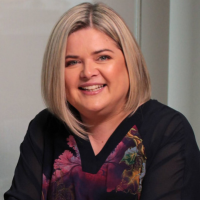
Dr Natalie Anderson is a senior lecturer and nurse with a background in health psychology and 25 years of clinical experience in emergency, critical care and ambulance settings. She has co-authored over thirty peer-reviewed research publications and several book chapters. Her PhD explored paramedic resuscitation decision-making, revealing the importance of paramedic preparation for termination of resuscitation, breaking bad news and care in the event of a death. Natalie is a member of the International Liaison Committee on Resuscitation (ILCOR) Education and Implementation Taskforce, Australasian Palliative Paramedicine Advisory Group and Te Ārai End-of-Life and Palliative Care Research Group.
Māori Health & Equity Lead – Clinical Services, Hato Hone St John
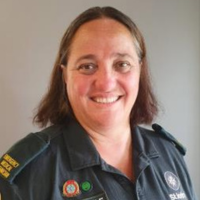
Ko Mauau te Maunga, Ko Wairoa te Awa, Ko Ngāti Ranginui me Ngāti Maniapoto aku iwi, Ko Aroha ahau, No Aotearoa ahau. Aroha has over 30 years’ experience working within the community which includes a variety of roles in Te Ao Māori, health, social services, volunteering, child development, supervision and working with others. Aroha has working with various Hauora and Social Service providers and currently works for Hato Hone St John as the National Māori Health & Equity Lead – Clinical Services. Aroha’s passion is to awhi, tautoko, manaaki and strengthen whānau throughout New Zealand
Director of Clinical Services, Ambulance Tasmania
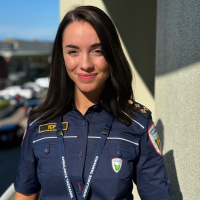
Jen is the Director of Clinical Services at Ambulance Tasmania, working alongside an incredible leadership team across the state to enhance and support the practice of paramedics across Tasmania. Jen’s previous experience is as an Advanced Care Paramedic and Paramedic Practice Leader (Manager) with BC Emergency Health Services, as an Army Medical Technician with the Canadian Armed Forces, and as a sessional instructor with BC’s two primary paramedic education institutes. Her interest in enhancing the out-of-hospital care experience for people who use drugs started during her tenure as a frontline paramedic working on Vancouver’s downtown east side, an area within Canada being decimated by a highly contaminated supply of drugs. This interest was honed during her time as a clinical manager at BCEHS, where she developed several new alternative conveyance and referral pathways for people who do not wish to be conveyed to the ED following a toxic drug event. Jen’s interests led her to completing a honours degree with Monash where she investigated the paramedic role in caring for people who use drugs, where the engagement and representation of people who have lived experience of drug use was identified as a concerning gap. Her area of research focus lies within enhancing systemic approaches to the patient/provider interface by enhancing and promoting the utilisation of person-centered, patient and provider-informed, and holistic performance metrics. Jen’s PhD will focus on shifting organizational performance metrics and values to ones that better represent long-term outcomes, and patient satisfaction of care, with special attention to marginalised populations.
Practitioner and Co-Owner Cygnet Family Practice
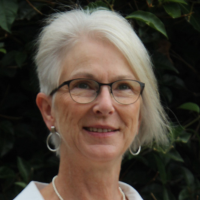
Kerrie has worked in general practice for the past 17 years and has been a nurse practitioner for the past thirteen. She has co-owned Cygnet Family Practice for the past 9 years. She holds post graduate certificates in intensive care, midwifery and general practice nursing. She has a Bachelor of Education Degree and is an authorised immuniser. She is passionate about people being able to access safe, quality and timely health care in their local community using interdisciplinary teams.
Director of Aboriginal Health Practitioners (Strategic Workforce), Primary and Public Health Care (PPHC), Central Australian Health Service (CAHS)
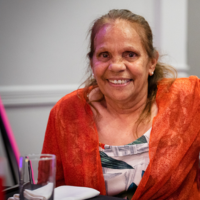
Jenifer Hampton, a dedicated healthcare professional with over forty years of experience in improving healthcare access and outcomes in remote communities. In 1976 she pursued nursing education at the Queen Elizabeth in Adelaide, igniting a lifelong commitment to healthcare. She started as an Aboriginal Health Worker (AHW) Clinician at the Central Australian Aboriginal Congress (CAAC) in Alice Springs, with an early career focused on educating and training AHWs, to foster a culture of continuous learning and professional growth within the Aboriginal health workforce. Jenifer’s career path is defined by her dedication to community engagement and empowerment. She spearheaded initiatives like the "Lighten Up" weight loss program and the "Strong Women's, Strong Babies, Strong Culture" initiative, and has consistently advocated for holistic healthcare approaches that prioritise cultural sensitivity and community involvement. Jenifer’s current role as Director of Aboriginal Health Practitioners at the Central Australia Health Service (CAHS) allows her to lead strategic workforce planning efforts to improve recruitment and retention of healthcare professionals in remote areas, and ensure healthcare services are tailored to the needs of Indigenous communities.
FACEM at Royal Hobart Hospital
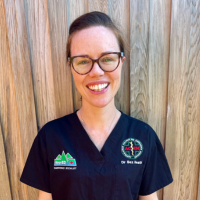
Rebecca is an Emergency Medicine specialist at the Royal Hobart Hospital and the department lead for Geriatric Emergency Medicine. In 2022 Rebecca completed her MPST Churchill Fellowship (visiting the U.S, Canada and the U.K.) looking at ways to improve acute medical care for Older Adults. Since returning she established a Geriatric Emergency Medicine Fellowship program at the Royal Hobart Hospital. Rebecca a member of the ACEM GEM Network Executive, lead for the Tasmanian Emergency Department Network Geriatric Emergency Medicine Special Interest Group, Hospital Clinical Lead for the Tasmanian Frailty Network and is currently undertaking a PhD in pre-hospital Frailty with the University of Queensland.
Senior Staff Specialist, Paediatric and Adult Emergency Specialist, Director and founder of Paediatric Emergency Medicine Courses (PEM Courses) and Emergency Medicine Courses (EM Courses)
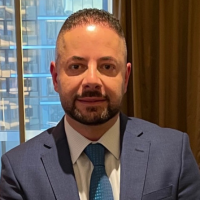
Alaa'n is a senior Adult and Paediatric Emergency Specialist at The Prince Charles Hospital and St Andrews War Memorial Hospital. Alaa'n has a passion for medical education and medical entrepreneurship. He is the founder and the director of multiple courses in Australasia. Alaa'n is the founder of PEM Courses, AFEM Courses and EM Courses.
Manager Clinical Practice- Integrated Care, Ambulance Tasmania
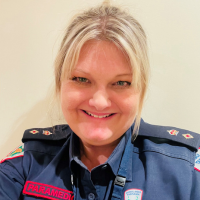
Dr Angela Martin PhD, is a Registered Paramedic, published author and long-standing advocate for Community Paramedicine. Her PhD thesis was an international exploratory study on perspectives of Community Paramedicine through multiple stakeholder lenses. After a 21-year career with SA Ambulance Service, Angela has recently embarked on an exciting career change, appointed as the Manager Clinical Practice – Integrated Care with Ambulance Tasmania. In this new role, Angela will draw from her research and clinical expertise to lead the progression of Community Paramedicine across Tasmania. Angela’s accolades include CAA Women in Ambulance honour recipient 2024, ACP Fellowship 2023, SA Emergency Services Medal 2018, SAAS Clinical Excellence Commendation 2016, ACP/SAAS Rod Kershaw Scholarship 2013. Her qualifications include PhD, MCommtyParamed (C.), GDipN (Emerg), BN, Dip.ParaSci (Amb), Dip.Mgt., Cert IV TAE. Angela has academic affiliations with Edith Cowan University, Flinders University and the International Institute Health Research Institute.
Extended Care Paramedic (ECP) Clinical Team Leader and ECP Education coordinator – SA Ambulance Service
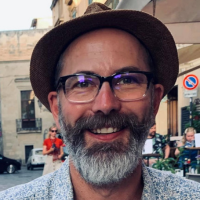
Andrew is a Clinical Team Leader with the SA Ambulance Extended Care Paramedic team and coordinates education of ECPs. He is also a senior clinical lecturer in paramedicine at Flinders University and has worked interstate and overseas as a remote area and rescue paramedic. He has a particular interest in paramedic education and the development of paramedic palliative care.
Adjunct Professor, Monash University & Charles Sturt University. Board Member, The Paramedic Network and the American Paramedic Association
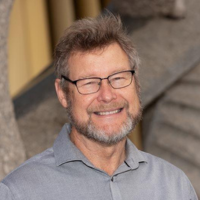
Dr Peter O’Meara is an Adjunct Professor of Paramedicine at both Monash and Charles Sturt universities, as well as a Board member of The Paramedic Network and the American Paramedic Association. Dr O'Meara's recent research has focused on the evolution of community paramedicine and violence against health care providers. He has published extensively on these and other paramedicine-related topics. Peter has edited one book, contributed ten book chapters, and published over 100 peer-reviewed papers. He has contributed toward the emergence of paramedicine as a health profession in Australia and other parts of the world.
Principal Advisor Pre-Hospital Care, Commissioning and System Improvement, NT Health
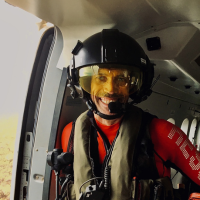
Paul Reeves (UK) and has worked in EMS for the past 30 years, beginning as a Paramedic in the NHS. He’s operated as a HEMS and Flight Intensive Care Paramedic (ICP) for 23 years, and as a Tactical Paramedic (UK Police) before then accepting a decade of roles internationally operating in Afghanistan, Iraq, Africa, SE Asia, and the Pacific. Paul’s was one of the UK’s early Emergency Care Practitioners, and adapted these skills to his international work. In 2015 Paul moved to Alice Springs (ICP) for 4 ½ years before spending a year in Broome, WA as an ICP SAR Rescue-Swimmer. In 2020 he moved to Darwin where he established Charles Darwin University’s Bachelor of Paramedicine. Paul currently works full-time for NT Department of Health as Principal Advisor for Prehospital Care and is guiding the development of Paramedicine in the Territory. He continues to lecture part-time and work clinically on Darwin’s Critical Response Unit.
Associate Professor in Paramedicine, Australian Catholic University; Chief Paramedic Officer, Safer Care Victoria
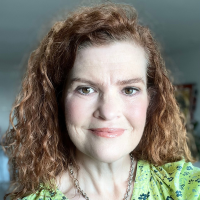
Dr Louise Reynolds, is ACU Associate Professor in Paramedicine and Safer Care Victoria’s Chief Paramedic Officer. She began her paramedicine career as a student paramedic with SA Ambulance Service before transitioning to research and academic roles. She was Australia's first female paramedic with a doctoral degree experience and her education experience in vocational, undergraduate, and postgraduate programs across Australia, UK, and South-East Asia. Louise’s research focuses on paramedicine workplace culture, employing qualitative methodologies. She is five times co-editor of 'Understanding the Australian Health Care System' and co-authors the paramedicine chapter. She is actively involved in professional bodies like the Australasian Council of Paramedicine Deans and Australasian College of Paramedicine.
Head of Postgraduate Programs Department of Paramedicine, Monash
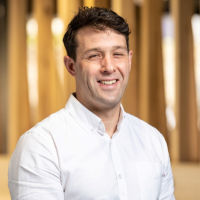
Brendan is head of Postgraduate Programs in the Department of Paramedicine at Monash University and a member of The Australasian College of Paramedicine Community Paramedicine working group. A registered paramedic with more than a decade of clinical experience, Brendan is passionate about refining healthcare models to ensure underserved communities receive requisite care and support. He is known for innovating new education programs and paramedicine models of care and career pathways including as the education lead for the Victorian Paramedic Practitioner program.
Community Paramedic (CP)/ Nurse Practitioner (NP) and Project Development, Cygnet Family Practice, Paramedic, Ambulance Tasmania, NP, Emergency, RACF and Primary Care
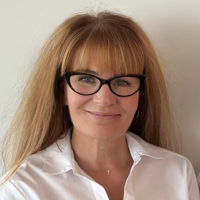
Alison has over 24 years of clinical experience and is a dedicated and versatile Nurse Practitioner and Paramedic. Her background includes roles in Emergency, Quality and Safety, Aged Care, and Primary Care settings, where she has demonstrated expertise in clinical care, leadership, and project management. Active in professional advocacy including membership to the Tasmanian Health Senate, Alison strives to influence policy and legislation around inclusion of non medical models into future planning. Alison is committed to advancing healthcare practices and improving patient outcomes especially in regional and remote areas.
National Rural Health Commissioner, Office of the National Rural Health Commissioner
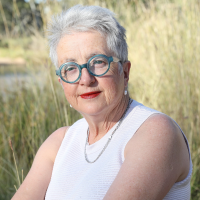
Adjunct Professor Ruth Stewart is the National Rural Health Commissioner. She has been a Rural Generalist with Advanced Skills in obstetrics for over 30 years, has worked clinically in private practice and rural hospitals and clinics in south west Victoria and far north Queensland.
Ruth is a past president of the Australian College of Rural and Remote Medicine (ACRRM), and established the rural Longitudinal Integrated Clerkship for Deakin University school of medicine and was Director of Rural Clinical Training for James Cook University School of Medicine and Dentistry.
She was for twelve years a board member of ACRRM, for 8 years of Cape York and then Torres and Cape Hospital and Health Service, a board member of Regional Training organisations and of the Tropical Australian Academic Health Centre. Ruth was awarded a PhD for her thesis “Lessons from the development of a maternity managed clinical network in a low volume rural context” by Flinders University in 2013.
Managing Director of Perth Injury and Pain Clinic, Soft Tissue Occupational Therapist, Certified McGill Method Practitioner and Strength and Conditioning Coach.
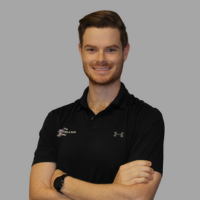
Jordan is a Soft Tissue Occupational Therapist and Managing Director of a private practice Pain Clinic in Perth, Western Australia. He works in Musculoskeletal rehabilitation, primarily with complex Low Back Disorders and Sports rehabilitation. Jordan is the first and currently only McGill Method Certified Practitioner in Western Australia and is one of only six people in Australia to receive this highly specialised certification. Furthermore, he is a Strength & Conditioning Coach in which he completed his training at the Western Australian Institute of Sport (WAIS).
ECP Clinical Lead, Hato Hone St John New Zealand
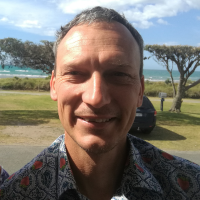
Fraser has had an extensive career in paramedicine in Aotearoa/New Zealand over the last 30 years. This has involved most flavours of generalist and specialist paramedic practice with a more recent focus on clinical support and education, development of the ECP model of specialist practice and ECP clinical practice guidelines. Fraser has interests in low-acuity and community based models of paramedicine, phone triage, guideline development and implementation, event paramedicine, disaster recovery, palliative and end-of life care, quantitative research, and equitable access to and outcomes from paramedic services
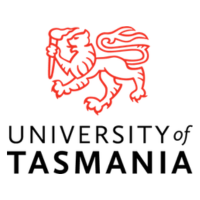
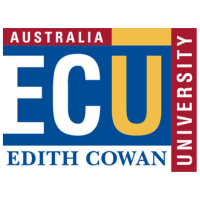
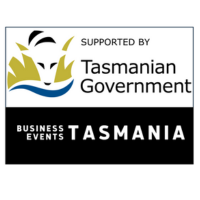

Get unlimited access to hundreds of ACP's top courses for your professional development.
Join Now